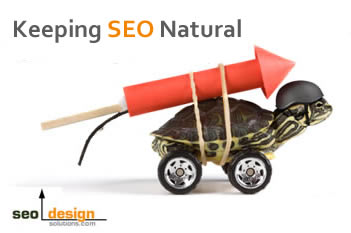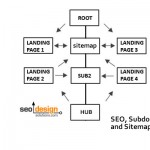In an Ode to Google Panda – “the most recent” update, overhaul, tweak, change, revision or any other verb you elect to describe this document classifier phenomenon, the fact remains the same that after 14 years of watching search engines, “change is imminent in search engines”, regardless of what or how you name it.
Let’s face it, change is nothing new (when it comes to Google) and to insist the sky is falling is often nothing more than the tell tale signs of an algorithm change seeking normalization as it unfolds before our eyes.
The crowd “running for their life” from the “evil robot” is a metaphor for harried webmasters impacted by Panda scurrying in an attempt to regain their bearings as the latest Panda Update shredded their online search share. Should you fear updates or changes or plan in advance to insulate your website from such trivial vacillations?
Why does Google constantly change what many would argue is a good thing, especially when you are ranking like a champ? Why? Aside from ensuring that people pay for ads from sponsored placement from Google, the logic suggests that keeping the algorithms fresh and relevant, means constantly changing the signals that classify a “popular” highly trafficked or relevant website to a “less popular”, less frequented destination.
The adage if you look good, they look good has never chimed in with such dire consequence – and for those who suffer from “being outside of the in crowd”, algorithmically or otherwise, the effect is a lack of organic search engine traffic.
This ruse is nothing new, in fact, since the onset of search engines and their various updates from Florida, Vince, Brand Rank, Big Daddy, Personalized Search, Google Instant and other tweaks to the visual or internal works – Google has always managed to normalize their results.
While there are things you can do to use the cloak of invisibility on the Panda update and transition through scott free, those caught in the web of its duplicate content/quality score/machine learning algorithm will need to wait 6 weeks or so (until the next crawl) to see if the changes you made were enough.
In essence, search engines make the best effort to determine what people really want. Yet, the only problem is, that it’s a machine making assumptions based on the trails of signals in progress or left behind (like ghosts in the ether).
I call it the SEO peer review paradigm and you can ignore it at your own risk. If you really “get it” and heed the simplicity of the clique, then you can skyrocket your rankings and/ or traffic from playing in tandem with this simple metric.
Rather than belabor the point, the SEO peer review paradigm is a finite measurement of quantitative authority.
This authority translates indirectly into search engine rankings which are based on distinct, relevant signals. Those ever changing signals are an aggregate collaboration of popularity, engagement time, content thresholds, links, on page optimization and time.
As the algorithm churns in an attempt to normalize the sea of data, the proper mixture yields results through higher positioning in the search engine results pages; one simple rule (or series of rules) filters and dampens online noise.
Metrics such as:
- Is your website worth reading, i.e. can it pass a quality raters manual review?
- Is the page relevant?
- Is the site surrounded by other relevant topical or theme specific content?
- Are there internal links that support each other from page to page?
- Are there deep links from other websites that support the page?
- Are there social signals to dictate authority, reach, range or gauge popularity?
- Are the signals time-sensitive, QDF (query deserves freshness factor) and or just a flash in the pan in a sea of churning data?
- But most of all is your web page genuinely worthy of being in the top 3 results?
That is all any Google update is striving for “an effort to become more human”, interactive and discerning through implementing signals and machine learning. The simple point, see how they see and model your website accordingly.
My advice to you, don’t get too caught up in the names of the tweaks, updates and changes. Just focus on quality, diversity and most of all try not to be overly dependent on any one traffic source when it comes to online revenues. Google is a great source of traffic, but by no means are they the only game in town.
Here is a link to the post from the past >>>Warning: Algorithm Changes Detected<<<.
Comments are open and welcomed.












Nice share. I agree, Google are not the game in town
I at first thought Google’s Panda was a good thing but I’ve read so many articles that are now having me think otherwise. SEO is always changing but Panda is going to completely reinvent it.